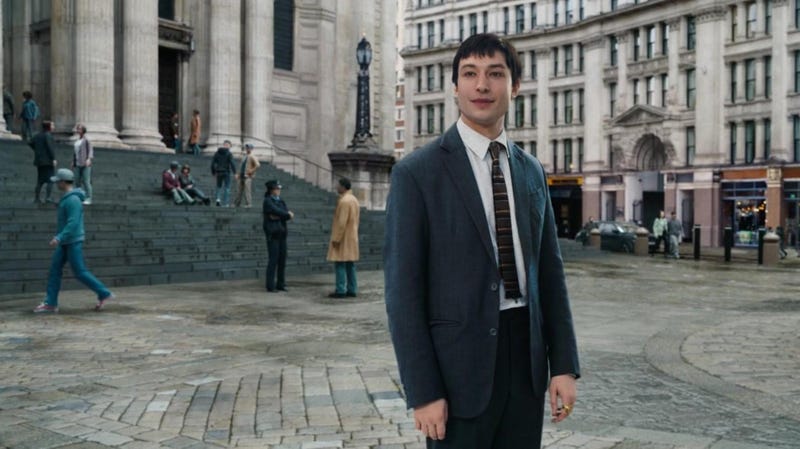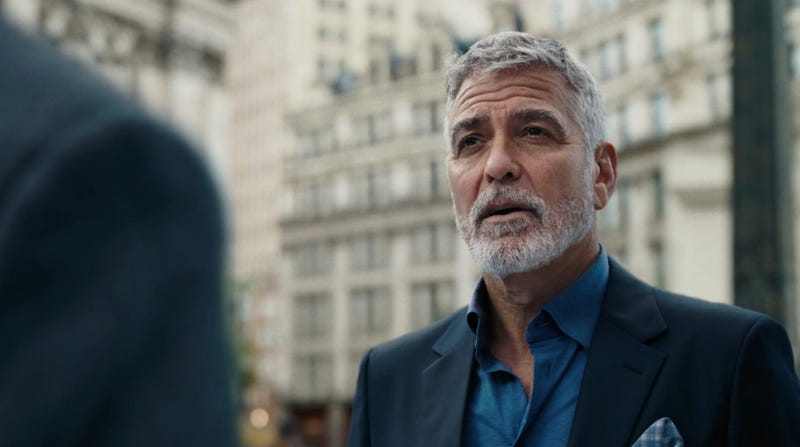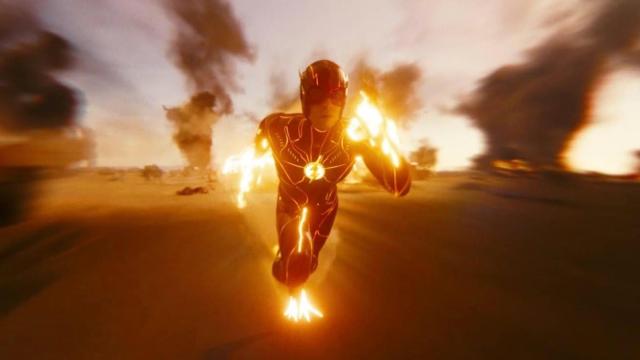One of the year’s most maligned movies, The Flash, hits the Max streaming service today. And, since the film was basically a box office disaster, grossing only $108 million domestic against a production budget well over $US200 million, this will probably be how most people see the movie.
The Flash had production issues from the start. Multiple directors and writers took cracks at the film, star Ezra Miller had numerous run-ins with the law, and even after director Andy Muschietti came on board and actually got the movie made, complications continued. Set photos of stars Michael Keaton and Sasha Calle, who played Batman and Supergirl, emerged from what was later revealed to be another alternate ending, leading to even more speculation about how fluid the film was before release.
This article isn’t about that. I didn’t see that ending. We’d imagine few outside of Warner Bros did. No, this article is about the alternate ending that many people saw: the one that Warner Bros. put on the film at its first major public screening at CinemaCon (which led to a generally positive response) and that fan audiences saw at multiple preview screenings in the weeks that followed. In fact, it wasn’t until the final week of release that the film’s actual, and final, ending was revealed.
The ending that screened at CinemaCon wrapped the film up on a very upbeat, exciting note. One that set the stage for the future of the DC Universe. The actual ending, which is more comical and expensive, ends it on an awkward, confusing note. And with the film hitting streaming today I wondered, did I like The Flash so much more than anyone else because I first saw it with that other ending? If the final release had that ending, would some fans been a bit more lenient towards it?

(Now we’re going to talk about the endings, so if you do want to watch The Flash, beware of spoilers).

So what was the difference between the endings? Let’s start with the actual ending that you can see now on Max. That ending sees Barry talking to Bruce Wayne after the trial exonerating his father. Bruce’s car pulls up and out pops George Clooney, who famously played Batman in 1997’s Batman & Robin. Barry is confused because this is the third Bruce that he has encountered in the film and as the two speak, Barry’s tooth, which he glued in earlier, falls out. Roll credits.
We get the basic idea here. Barry changed the past to help his father but, as a result, still ended up in an alternate universe. And now, George Clooney is in your movie, which is tough to cut out. But the real ending leaves so many unanswered questions as fans leave the theater. “Does Barry now have to leave this universe if he’s in future movies?” “What happened to the Ben Affleck version?” “Are all the other Batmen from the previous movies out there?” Because let’s face it. George Clooney, game as he was to even do this cameo, is not coming back for more Batman movies. All that, plus the unfunny tooth callback, leaves you scratching your head at the end. There’s no excitement. Some surprise? Sure. Who doesn’t love a good Batman & Robin joke? But once that wears off, it’s kind of soulless.

The ending I saw, the one that left me feeling happy and hopefully, is so much simpler and smarter. At the start, everything is the same. Barry leaves the courtroom, talks to Bruce on the phone, a car pulls up and we see feet exit the car. At this point Barry screams “Who the fuck is this guy?” and boom, the credits roll. We don’t see who Batman is. We just know it’s a new Batman from the ones Barry has seen. It simultaneously leaves the door open for the future, as well as being a killer out on a perfect use of your one PG-13 F-bomb.
The future bit is because, as some audience members will surely know, when The Flash was being finished, James Gunn and Peter Safran took over DC Films. At that time, they announced they would be casting a new, in-universe Batman. So in my mind, this ending was Barry seeing that guy, whoever it ends up being in the future. It cleanly moved Barry into the new, James Gunn DC Universe. But also, if you didn’t know that, you could imagine it was whomever you wanted it to be: Robert Pattinson, Christian Bale, etc.
Now, of course, there’s the larger issue: no matter which ending is in the movie, the rest of The Flash is still the same. Ezra Miller’s off-screen issues loom large, it still has the same visual effects everyone hated, same finale everyone hated, and same humour everyone hated. (Well, everyone except me it feels like.) But a big “Wow” moment at the end, leaving people feeling good, is a powerful tool— and you have to wonder, if audiences left The Flash talking about who the new Batman was instead of a tooth falling out, would it have gained a few more fans than it did? We think so.
Decide for yourself right now as The Flash is streaming on Max. And, if you want, just stop it right after Barry sees Bruce Wayne.
Want more entertainment news? Check out when to expect the latest Marvel, Star Wars, and DC releases, what’s coming to cinemas in Australia this year, and everything streaming this month across all platforms. Check out our dedicated Entertainment tab for more.
